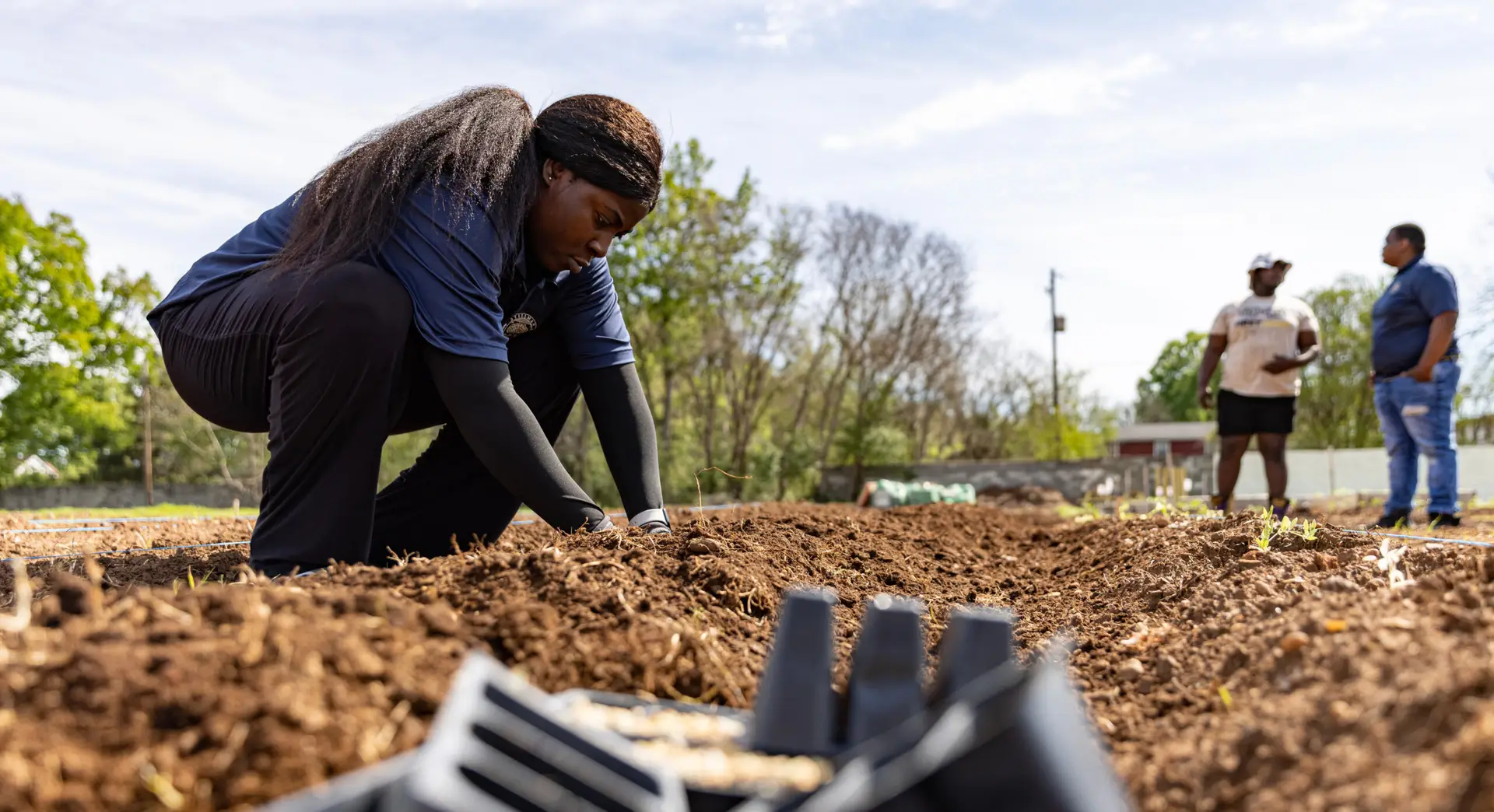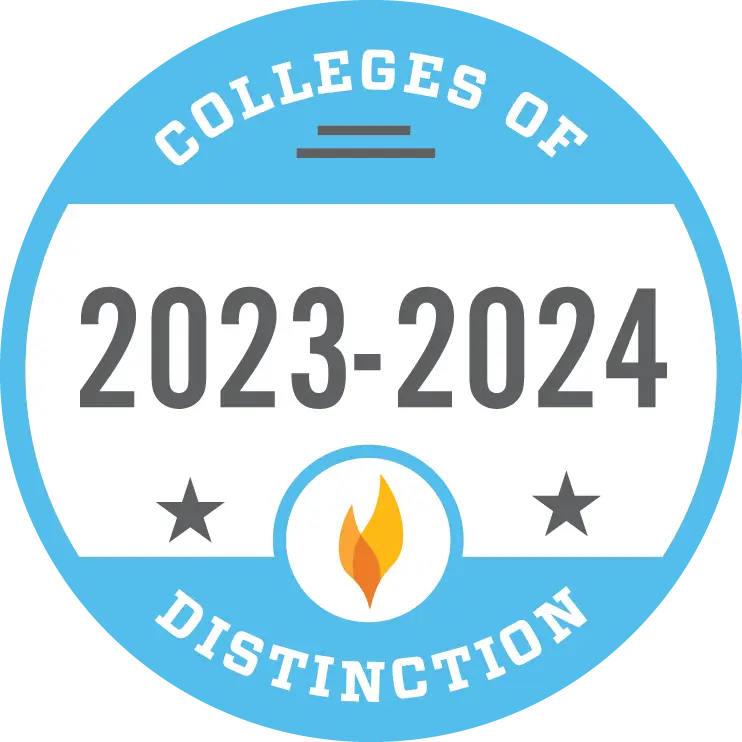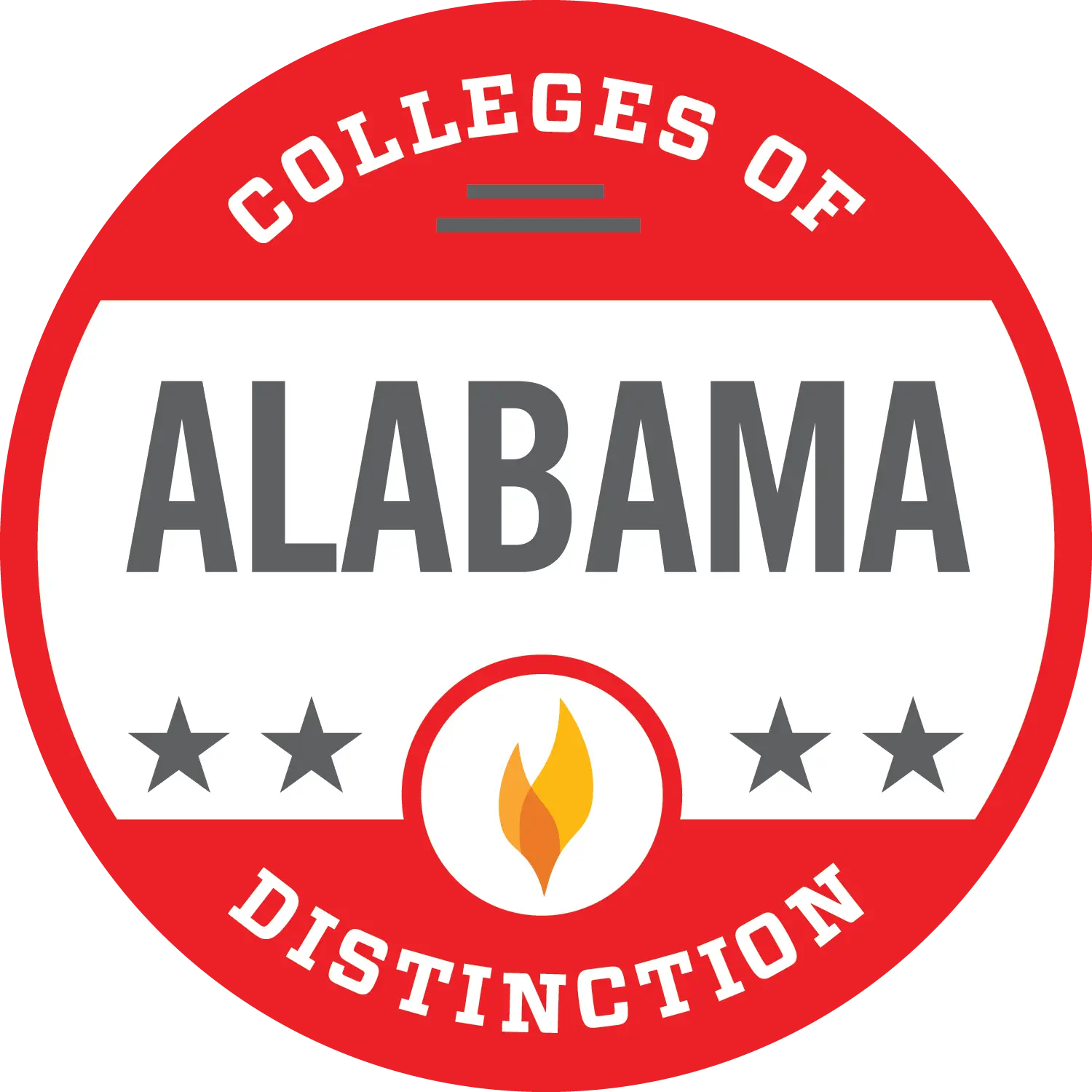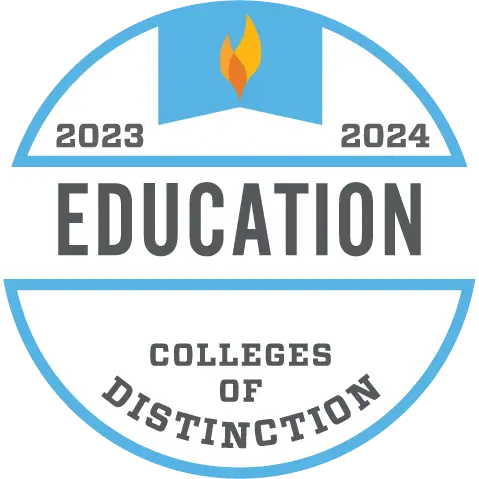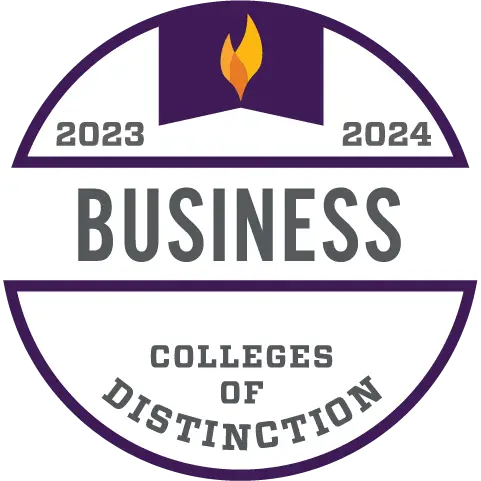TUSCALOOSA, Ala. – The Stillman Foundation’s Community Garden recently received a significant boost from community partners to help fight food insecurity in West Tuscaloosa.
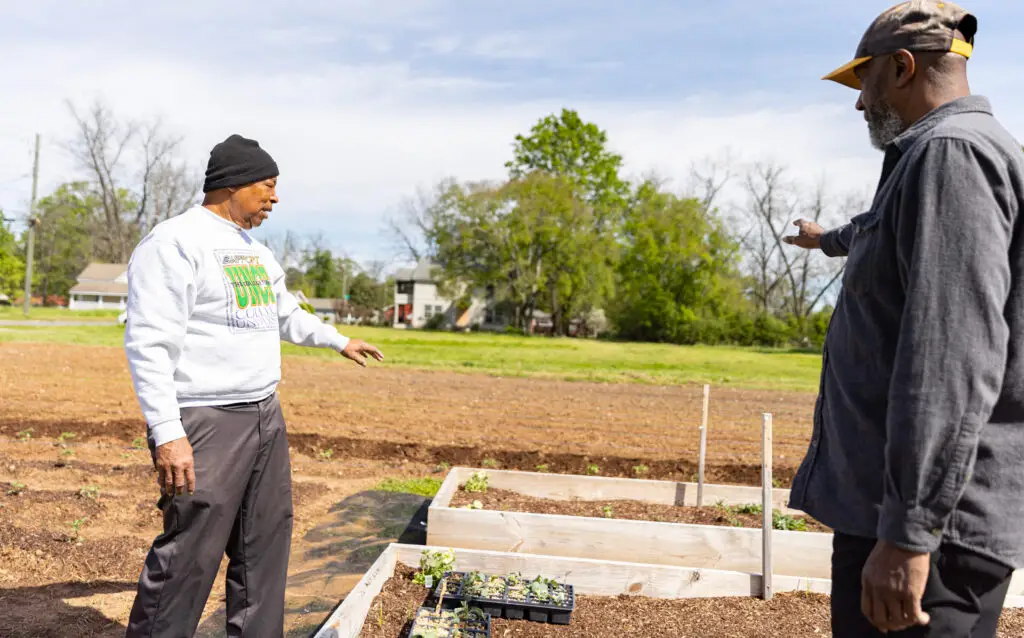
Stillman College, the House Tuscaloosa, the Scott Soil Company, Jeremiah’s Garden, Tombigbee Resource Development & Conservation Council of Tuscaloosa, and others are working on the garden to start the Know: Grow: Show (KGS) community service-learning project with West Tuscaloosa Schools to help students fight food insecurity in their communities.
These businesses and organizations donated materials and equipment to help jump-start the project, including pallets of bags of soil and seeds to grow collard greens at the Stillman Foundation Community Garden site on Stillman Boulevard.
“The recent donations to the Stillman Foundation Community Garden will allow more fruits and vegetables to be grown and harvested in the garden,” said Mason Bonner, director of social justice and community engagement at Stillman College. “This will provide opportunities and resources to donate to the Tuscaloosa Soup Bowl and to residents in the West End area of Tuscaloosa near the location of the garden.
“Naturally grown fruit and vegetables will ensure more nutritional and healthy foods will be available to decrease food insecurity in our city.”
According to Feeding America, 14% of residents and 18% of children in Tuscaloosa County are food insecure. The issue is exacerbated in Tuscaloosa’s West End, where residents have a median household income of under $26,000, according to the 2020 census.
Bonner said the 12-week after-school program will help students “Know” by developing literacy skills through “reading materials about nutrition and health and gardening (and) a written plan for their garden.”
“Growing” will span four stages:
- Planning
- Preparing
- Cultivating
- Harvesting
“We will climax our participant experience with our ‘showing’ stage, where participants will be cooking, giving, and presenting their works based on an overall literacy goal,” Bonner said.
This program starts with the work of the Stillman Foundation Community Garden committee, and donations from its partners; the Scott Soil Company recently donated organic soil to Jennifer Crutchfield, advisor for Brookwood High School’s chapter of Future Farmers of America, and gave eight pallets – more than 400 bags of soil – to the Stillman Foundation Garden.
The Tuscaloosa County Public Works Department utilized a tractor-trailer truck, one Bobcat, and two dump trucks to transport the soil from Brookwood High School to Stillman College.
Still, the Stillman Foundation Community Garden needed more than soil to grow vegetables and fruits it – needed seeds. Nneka Williams, the program manager for Tombigbee Resource Development & Conservation Council of Tuscaloosa, would provide the garden with seeds to grow collard greens, tomatoes, broccoli, black-eyed peas, peppers, and turnip seed packets. Williams also awarded a $1,500.00 grant to fund preparation, planting, cultivating, and harvesting costs for the Stillman garden.
“Here at Tombigbee RC&D, we dedicate ourselves to serving our eight counties and want to go the extra mile to form relationships and help each organization every step of the way,” Williams said. “As I began working here, I fell in love with the job, the people, and the mission. “
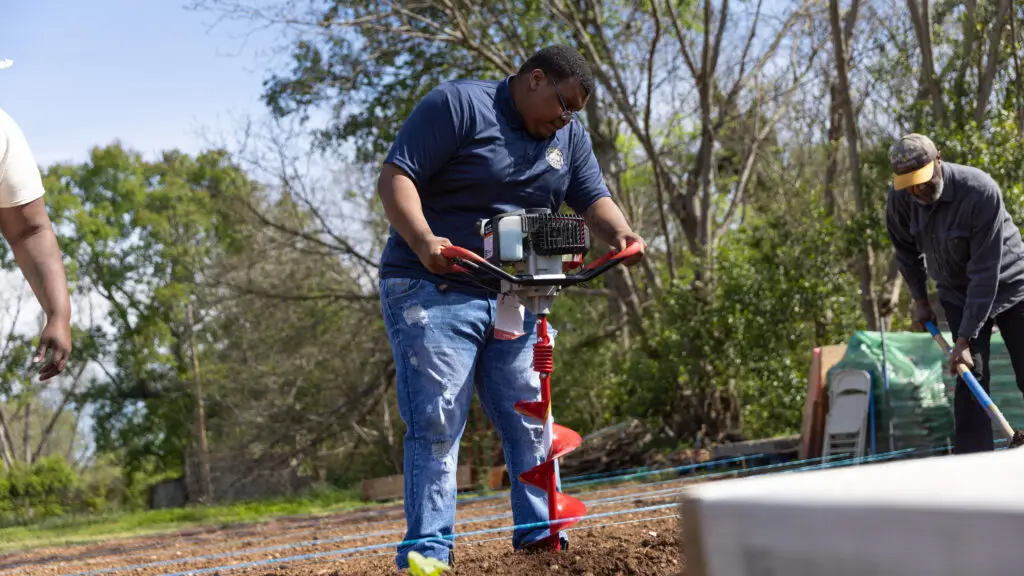
Stillman also met with Fran Viscelli from Jeremiah’s Garden, which is working directly with Ekhorose Aghahowa, a Stillman College Faith-Based Fellow who manages the Stillman Foundation Community Garden. Viselli has provided Ekhorose with the steps for the seeding process along with the soil preparation.
George Wilson, deputy program manager for Stillman College, will map the layout and irrigation system for the garden. Wilson also has agreed to mentor Ekhorose through this process of seed preparation, starter plants, cultivating, and harvesting.
Bonner said some of the starter plants and seeds have already been planted in the garden. The seeds in the general area are the collard greens and tomatoes to help aid a $10,000 grant project with Stillman’s Metz Cafeteria, and tomatoes. He said an additional 14 garden beds will [soon] be used by Central Elementary, Oakdale Elementary, Martin Luther King Jr., Westlawn Middle, Tuscaloosa Career Technology Academy, and the Community School.
The Stillman Foundation Community Garden’s community partners aim to have the program fully launched by no later than January 2024. In the meantime, Stillman students will remain working and contributing across new harvest cycles at the garden. This semester, students have maintained seedlings at Stillman’s greenhouse at Stinson Math and Science Building and transplanted them to the garden. Students have learned to use power gardening tools, such as tillers and augers, to prep soil.

